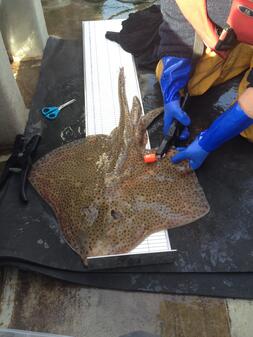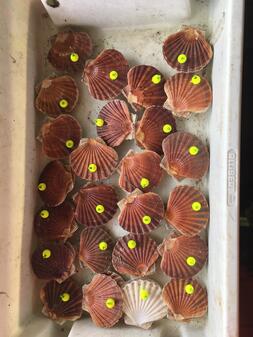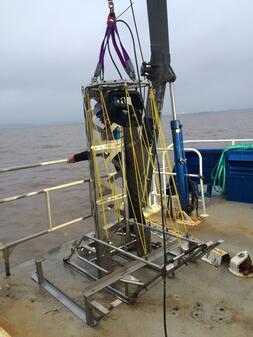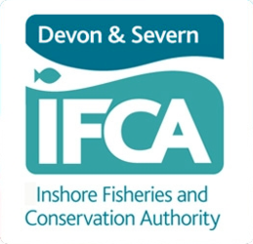Partnership Projects
- Home
- Environment & Research
- Partnership Projects
Page review/updated 04/12/2024
(Content of page last updated: 4th July 2022)
Part of D&S IFCA’s role is to work with stakeholder groups, in so doing making partnership working a core tenet of the IFCA co-management approach.
D&S IFCA’s research projects frequently involve partnership working to fulfil the IFCA’s evidence requirements, to inform local management and input into national policy discussions.
The Environment Team works in partnership with many different organisations and sectors covering wide ranging, diverse projects. One examples of this is the Marine Pioneer Programme, where D&S IFCA is working with MMO, North Devon Biosphere, Blue Marine Foundation South West Partnership for Environmental and Economic Prosperity, and WWF- UK Seas.
Partnership working is at the core of the evidence gathering that D&S IFCA undertakes. Many of the research projects undertaken could simply not occur without a partnership approach because of the scale, range of equipment, expertise, and funding required.


A partnership approach to evidence collection builds research capacity, increases trust in the outputs and helps to make sure the results reach key audiences. Working closely with a range of partners also facilitates access larger funding streams. Research project partners include commercial and recreational fishers, NGOs, academia, local authorities and arms-length government bodies such as Cefas, Natural England and the Environment Agency.
Projects undertaken by D&S IFCA may come out of questions asked by the Authority, concerns from members of the different fishing sectors, and requests from other organisations for D&S IFCA officers to contribute their expertise and knowledge to the research. D&S IFCA may lead the research project or be a partner organisation.

As mentioned, partnership projects often originate from questions from industry. For example, following increased sightings of juvenile crawfish (Palinurus elephas) since 2014/15, commercial fishers on the D&S Authority raised the need for more information on this species. D&S IFCA officers commenced a review of literature and data gathering to greater understand the extent of the recovery and the level of recruitment. Fishers were concerned that once the juveniles reach landable size that there could be a boom and bust fishery. The research being undertaken will help inform local and regional sustainable management of the stocks. D&S IFCA, together with Cornwall and Isles of Scilly IFCAs, have developed a partnership project which includes fishing industry members, the Universities of Exeter and Plymouth, Cefas, Seasearch and the MMO. Information on catches, landings and biological data are collected by fishers and from onboard observer surveys and quayside sampling. D&S IFCA officers have demonstrated crawfish tagging methodology to fishers, who are now undertaking this work during their normal fishing operations. Trialling post-larval settlement collectors will take place in 2020. More information on this this project under the Crustacean Research section of D&S IFCA’s website. Similarly, the Bristol Channel Herring project was formed when local fishermen at Minehead raised concerns about local movement of shingle affecting what they believed to be an undocumented local spawning population. D&S IFCA then contributed to research in collaboration with the fishermen, the Marine Pioneer programme and Swansea University. This research is still ongoing.
Other research topics where D&S IFCA is a partner include: the effectiveness of seal deterrents on static nets; cuttlefish recruitment; scallop spawning timing; the movement patterns of thornback and blonde ray in the Bristol Channel; bass use of bass nursery areas and Project UK Fisheries Improvement Plans.
Partnership projects are also undertaken to further the IFCA’s education and awareness reach, for example, the FishTrail project worked with angling NGO’s and European partners to promote sustainable angling practices to both local and tourist anglers.
